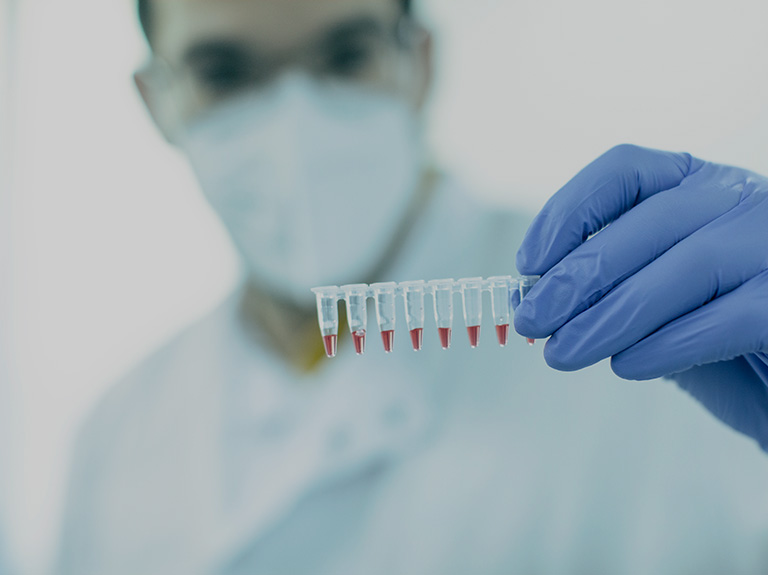The application window for the PCRBIO Research Grant is now closed. Please do not submit an application, as it will not be considered. Results will be announced in January 2024.
The grant offers a total of £10,000 funding for PCR reagents to scientists working in human health, microbiology, plant sciences, environment and sustainability, and all other research areas with a biological focus or which require plenty of PCR.
Applications will run from 1st September until 30th November 2023. The results will be announced, and funding will commence, in January 2024.
The PCRBIO Research Grant will be awarded as follows:
- A main award of £6,000 of PCR reagents over 3 years
- 4 runner up prizes of £1000 of PCR reagents
- Help and technical support with all PCR related queries pertaining to our reagents
This award is ideal for PhD students, post-doctoral researchers, and academics looking for extra funding to expand their lab. To apply, simply complete the application form below.
This webpage is for applicants in the UK, if applying in the USA, follow this link.
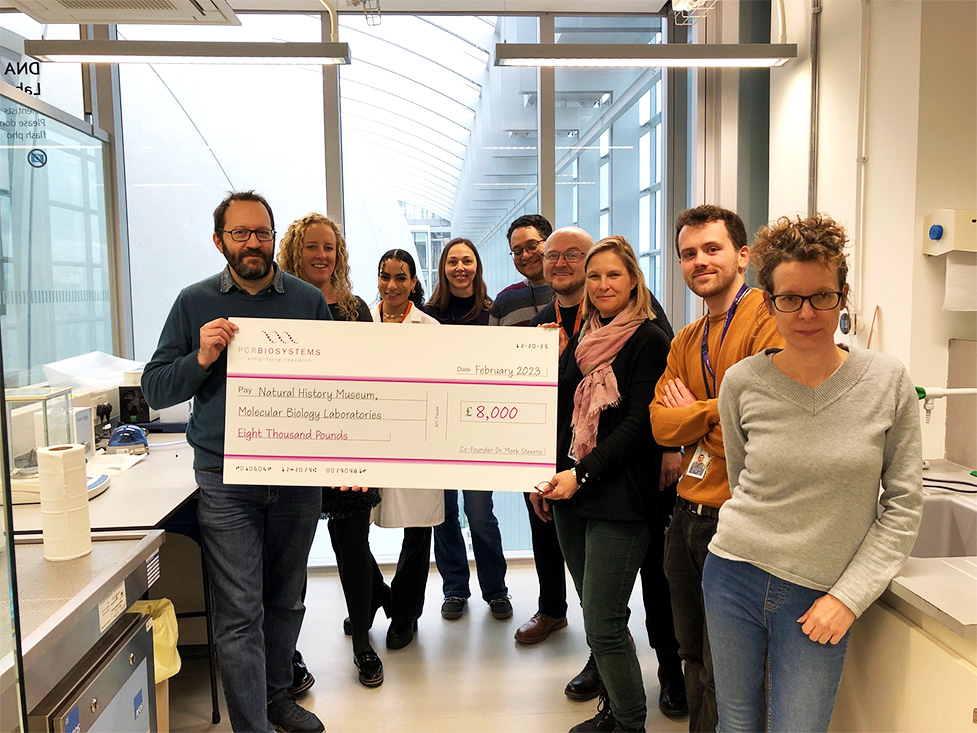
This grant is open to full-time academic researchers of all levels, from PhD candidates to principal investigators, including lab technicians and lab managers, who submit applications on time. The grant is only available to researchers at UK academic institutions. A parallel grant for US academics is available here.
We encourage members of the same lab group to submit a single joint application describing all PCR work that is carried out in their lab, rather than submitting individual applications.
Criteria evaluated include:
- Expected impact on the field of study
- Expected broader impact (social/medical/healthcare/diagnostic)
- Novelty
- Clarity, completeness
- How realistic is the requirement for the requested number of PCR reactions?
- Grants will be made out to the hosting laboratory (i.e., if you move laboratories before the grant funds are exhausted these will remain with the recipient host laboratory) in the form of credit with PCR Biosystems.
- By submitting your application, you certify that you have been granted all permissions required by your academic supervisor or department to process this grant. It is your responsibility to ensure this is the case prior to submission.
- This grant covers all PCR Biosystems reagents, excluding dNTPs and DNA markers. Exceptions can be made when a reasonable quantity of these two product types is ordered along with any enzyme and only by separate communication with your PCR Biosystems account manager.
- Funding will commence in January 2024 and recipients will be able to place orders up to the maximum allotted amount at their discretion, in as many orders as they choose, until midnight December 31, 2027, or until the allotted funds are exhausted, whichever occurs first. Reagent cost will be deducted from the grant at the product list price.
- Grant applications will be assessed by an internal team of PCR experts and a shortlist will be reviewed by a mixed judging panel of internal and external research experts.
- PCR Biosystems retains the right to exclude any application, without giving a reason, at our own discretion.
- Multiple applications from the same individual will not be considered.
- Only one grant will be awarded per research group.
- Grant recipients consent to their identity and institute name being published on the PCR Biosystems website, social media, and on other promotional materials.
- Grant recipients agree to share at least one piece of content (lab photo or video, data image, video discussing their work with PCR Biosystems reagents, or other similar piece of content) with PCR Biosystems for promotional use. The main grant (£6000 prize) recipient agrees to share one such piece of content annually.
- Grant recipients agree to acknowledge PCR Biosystems funding on all works containing data generated with PCR Biosystems reagents acquired as part of the grant.
- Your personal data will be used for the purposes described in our privacy policy.

Professor Julian Marchesi
Professor of Digestive Health
Faculty of Medicine, Imperial College London
Professor Julian R. Marchesi graduated from Cardiff University with a PhD in biochemistry (1992) and became interested in the role bacteria play in biosystem function. His work uses a variety of “omic” approaches such as metagenomics, metatranscriptomics, metabonomics and organoid culture to understand how the microbiome influences the non-communicable diseases, such as IBD and cancer and how it drives and supports disease progression and therapies. He now holds the Chair in Digestive Diseases at Imperial College London.

Elena Lugli
Researcher
Natural History Museum, London
Dr Elena Lugli works at the Natural History Museum in the Molecular Laboratories where her work includes supporting museum researchers in numerous and varied projects. This ranges from improving molecular diagnostic tests of parasitic trematodes and identifying species from environmental samples to extracting DNA from the museum’s collections to better understand the phylogenetic relationship between species. Prior to the NHM she carried out postdoctoral immunological and infectious diseases research at the University of Oxford, New York University and Imperial College.

Sarah Withers
Post-Doctoral Research Assistant
Newcastle University
Dr Sarah Withers is a research associate at Newcastle University, working on a project focused on a group of rare autoinflammatory diseases, known as the Type I Interferonopathies. This being a topic which she also researched during her PhD at the University of Manchester. Her projects have focused on both in vivo disease modelling (in zebrafish and mice models) and in vitro models, utilising induced pluripotent stem cells (iPSCs) to try and increase our understanding of these diseases.

Constantine Garagounis
Product Marketing Specialist
PCR Biosystems
Dr Constantine Garagounis studied Biochemistry and Biotechnology and has a DPhil in Plant Sciences from the University of Oxford. He worked as a post-doctoral researcher and contract lecturer on plant secondary metabolism and how it affects plant microbe interactions. He has conducted various research projects in plant synthetic biology and engineering plant metabolic pathways and lectured in corresponding courses. He is currently working as a Product Marketing Specialist for PCR Biosystems.
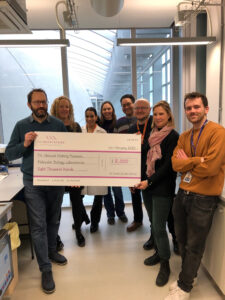
Elena Lugli
Post-doctoral Researcher
Natural History Museum, London
Molecular Biology Research
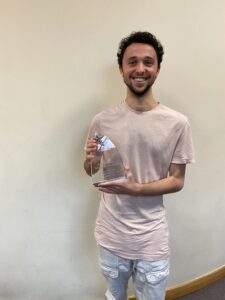
Bruno Salomone Gonzalez de Castejon
Researcher
University of Bristol
Biomedical Science
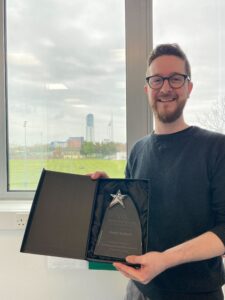
Robert Baldock
Senior Researcher
University of Portsmouth
Biomedical Science
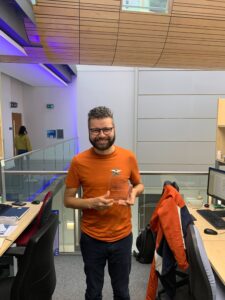
Victor Tapia Olivares
Post-doctoral Researcher
University of Mancherster
Biomedical Science

Sareen Galbraith
Senior Researcher
Leeds Beckett University
Biomedical Science



